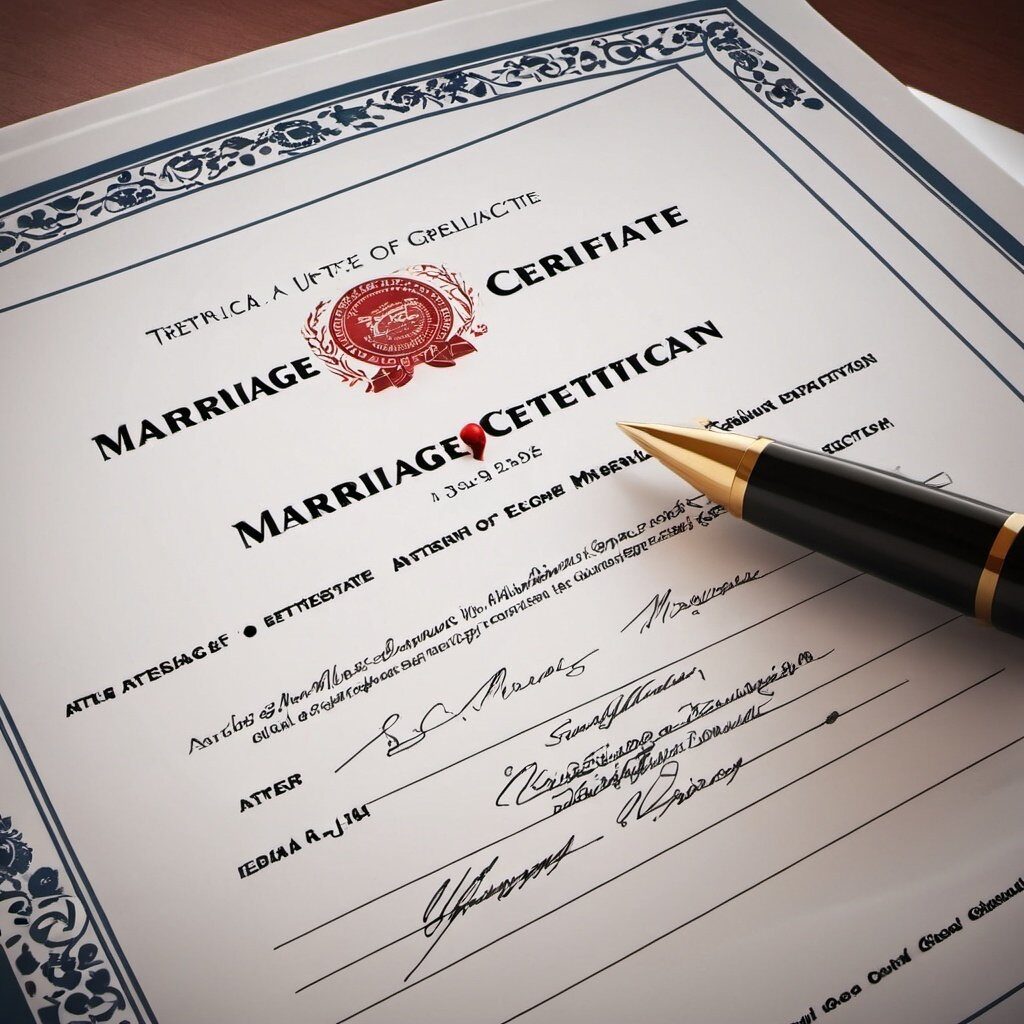Introduction
In the globalized world we live in today, people often move across borders for various reasons such as work, education, or personal commitments. One crucial aspect of international relocation is the recognition of legal documents by the host country. For individuals moving from India to the Netherlands, a common requirement is the apostille of their marriage certificate. An apostille is a form of authentication issued to documents for use in countries that are part of the Hague Convention of 1961, to which both India and the Netherlands are signatories. This document explains the process, importance, and detailed steps involved in obtaining an apostille for an Indian marriage certificate intended for use in the Netherlands.
Importance of Apostille
The apostille process authenticates the origin of the document, ensuring that it is recognized as legally valid in the foreign country. Without an apostille, your marriage certificate might not be accepted by Dutch authorities, potentially causing delays or complications in legal, immigration, or administrative processes. For instance, an apostilled marriage certificate may be required for visa applications, residence permits, or even for spousal benefits and inheritance claims in the Netherlands.

Process of Apostille in India
Step 1: Procuring the Marriage Certificate
Before obtaining an apostille, you must have an original or a certified copy of your marriage certificate issued by the appropriate authorities in India. Typically, marriage certificates in India are issued by the Registrar of Marriages under the state government.
Step 2: Attestation by Local Authorities
The first step in the apostille process is to get the document attested by local authorities. This usually involves:
- Notary Attestation: The document must be attested by a Notary Public. This step verifies that the document is authentic and has been signed by the concerned parties.
- Home Department/SDM Attestation: The marriage certificate must then be attested by the Home Department of the respective state or by a Sub-Divisional Magistrate (SDM). This level of attestation confirms that the document has been verified by a competent authority.
Step 3: Apostille by Ministry of External Affairs (MEA)
Once the document is attested by the local authorities, it must be submitted to the Ministry of External Affairs (MEA) in India. The MEA is the designated authority in India for issuing apostilles. The MEA verifies the previous attestation and then places an apostille sticker on the document. This sticker includes a unique identification number, allowing any participating Hague Convention country to verify the authenticity of the document electronically.
Step 4: Verification by Dutch Authorities
Although the apostille itself ensures that the document is legally recognized, in some cases, Dutch authorities might request further verification. This can involve presenting the apostilled document to the Dutch embassy or consulate in India or directly to the relevant authorities in the Netherlands.
Importance in the Netherlands
Having an apostilled marriage certificate is crucial for a variety of legal and administrative procedures in the Netherlands. Some of the key areas where it might be necessary include:
- Immigration and Residency: When applying for a spouse visa or residency permit, Dutch immigration authorities will require proof of marriage.
- Social Security and Benefits: To claim spousal benefits or register for certain social security services.
- Legal Proceedings: For any legal matters that require proof of marital status.
- Property and Inheritance Claims: To establish the legal right to property or inheritance as a spouse.

Obtaining an apostille for an Indian marriage certificate for use in the Netherlands is a crucial step for ensuring the smooth recognition of your marital status in the Netherlands. While the process may seem intricate, understanding each step and preparing adequately can help streamline it. An apostilled marriage certificate not only facilitates legal and administrative processes but also provides peace of mind as you embark on your new journey in the Netherlands. By following the outlined procedures and preparing the necessary documentation, you can ensure that your transition is as seamless as possible.
Q&A on Apostille of Indian Marriage Certificate for Use in the Netherlands
Why do I need to apostille my Indian marriage certificate for use in the Netherlands?
The apostille process authenticates your marriage certificate, making it legally valid and recognized by Dutch authorities. This is essential for various legal, immigration, and administrative procedures such as visa applications, residency permits, and spousal benefits.
What is the first step in getting my Indian marriage certificate apostilled?
The first step is to ensure you have the original marriage certificate issued by the Registrar of Marriages. If you don’t have the original, you need to obtain a certified copy from the issuing authority.
What documents do I need for the apostille process?
- The original marriage certificate.
- Photocopies of the marriage certificate.
- Identification proofs such as passports or Aadhar cards.
- An application form as required by the attesting authorities.
- A covering letter stating the purpose of obtaining an apostille.
Do I need to translate my marriage certificate for use in the Netherlands?
In some cases, Dutch authorities may require a translated version of the marriage certificate. The translation should be done by a certified translator and may need to be apostilled as well.